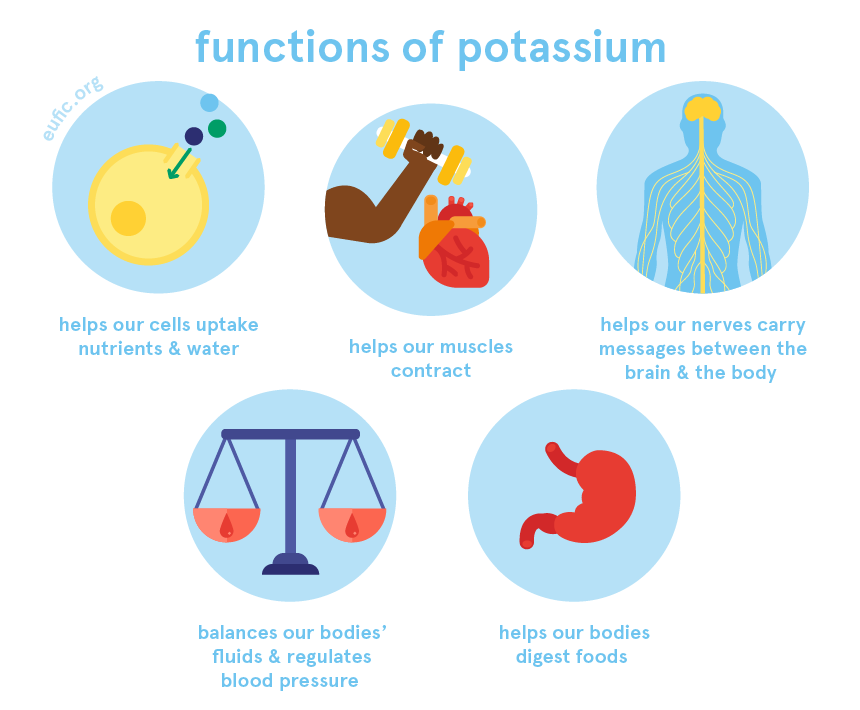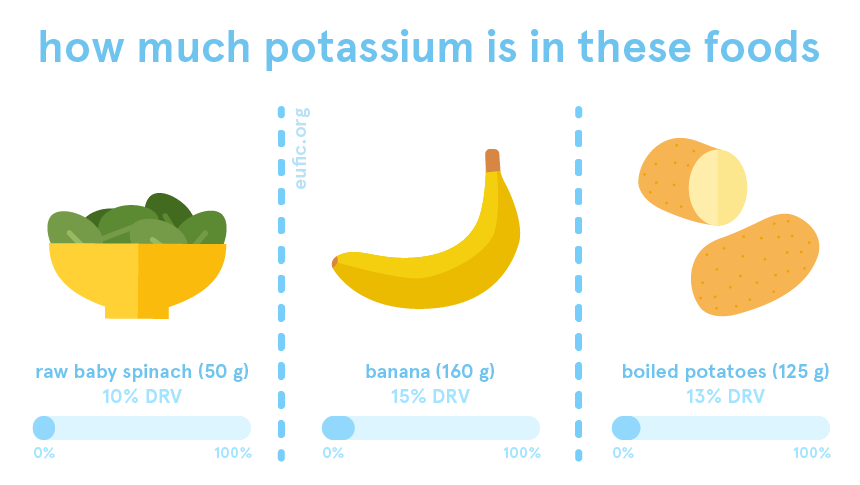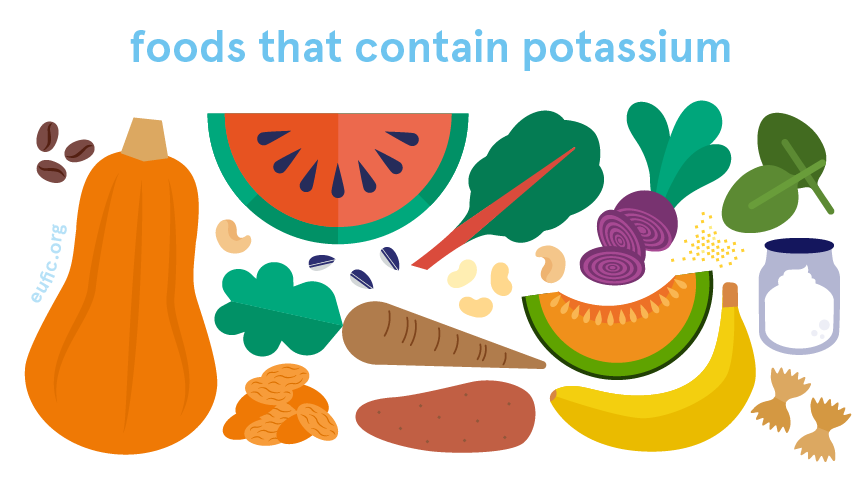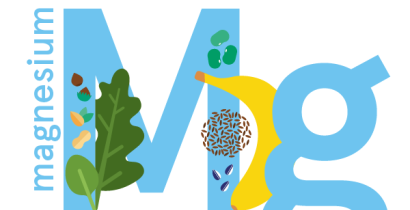Potassium: foods, functions, how much do you need & more
Last Updated : 11 January 2021You may have heard that bananas are rich in potassium, but it is present in a lot of foods and needed for several processes in the body.
What is potassium?
Potassium is one of the major minerals, which our bodies need in relatively larger amounts to keep healthy. We can find potassium in a variety of foods.
What are the functions of potassium?
Potassium is involved in many of our bodily functions. Similar to sodium and chloride, potassium creates specific channels in the cells which carry out different vital tasks. These tasks include helping our muscles and heart contract, helping our nerve cells communicate (send impulses between them), regulating the water balance inside and outside cells, transporting specific substances into our cells, regulating our bodies’ pH, and keeping normal blood pressure.
Potassium also helps in the digestion of foods, by supporting the release of saliva and gastric acids and by helping in the digestion and absorption of proteins and carbohydrates.

How much potassium do I need per day?
How much potassium you need per day changes according to your age, sex and life-stage.
The dietary reference value (DRV)* for healthy adults (over the age of 18), including during pregnancy, is 3500 mg of potassium per day. During lactation, needs can go up to 4000 mg of potassium per day.
We can get enough potassium from our diets by eating a variety of foods. Following your country's dietary guidelines on a healthy and balanced diet will help you meet your needs for potassium.

* These values are based on the adequate intake (AI) estimates from the European Food Safety Authority (EFSA). They should not be interpreted as nutrient goals. To know more about DRVs in Europe click here.
What foods contain potassium?
We can find potassium in almost every food, but some of its richest sources include:
- starchy roots or tubers
- vegetables
- fruits
- whole grains
- dairy products
- coffee.

Does potassium interact with other nutrients?
Potassium interacts with chloride and sodium in helping to regulate the volume of water in the body and to support the function of our muscle’ and nerve cells.
Having the right balance of these three minerals in our diets – particularly by making sure we eat enough potassium and keep our salt intake within the recommended values – is key to support a healthy blood pressure.
What happens if I have too little potassium?
It’s not common to have too little potassium in our diets since this mineral is present in most foods.
Low levels of potassium in the blood are called hypokalaemia and are mainly caused by specific health conditions in which our bodies lose too much potassium. This includes severe episodes of diarrhoea or vomiting, burns or higher losses through the urine due to the use of specific medications (such as diuretics). If not reverted quickly, hypokalaemia can lead to serious heart problems.
What happens if I have too much potassium?
Potassium from foods is not considered harmful since it’s highly unlikely that we get too much of it through our diets alone. Plus, our bodies are quite effective at keeping the levels of this mineral within a healthy range by getting rid of any unnecessary surplus through urine.
High levels of potassium in the blood are called hyperkalaemia and mainly occur in people who have impaired kidney function or in those who consume inappropriate amounts of potassium through supplements. Symptoms are usually non-specific, but in severe cases, it can lead to serious heart problems.
When should I pay extra attention to my potassium intake?
Potassium deficiency is not a risk for the general population with a varied and balanced diet.
References
- European Food Safety Authority, (EFSA). 2016. Scientific Opinion on Dietary Reference Values for Potassium. EFSA Journal;14(10):4592
- Public Health England. 2019. McCance and Widdowson’s Composition of Foods Integrated Dataset.



